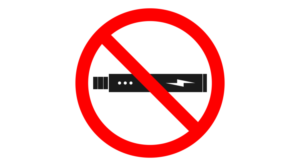In 2015, new expungement laws came into effect under Minnesota law. Under Minn. Stat § 609A.03, an individual with a criminal record can see expungement if he or she petitions the court. The court may expunge misdemeanors and petty misdemeanors convictions if the petitioner has not been convicted of a new crime for at least two years since the end of the sentence for the previous crime. If convicted of a felony, the court cannot expunge the record unless the petitioner has not been convicted of a new crime for five years since the discharge of the sentence for the felony. However, only certain non-violent felonies can be expunged. Section 609A.02 lists fifty different felonies that may be expunged including financial crimes, fraud, wildlife arson, livestock theft, and receiving stolen goods.
Section 609A.03 provides the requirements for expungement, including a petition which provides (1) personal information about the petitioner, (2) reasons why the petitioner seeks expungement, (3) details of the offense including information about victims, (4) how the petitioner has rehabilitated herself, (5) any and all criminal charges, and (6) previous expungement requests. The petition must be served on the prosecutor’s office with jurisdiction over the original offense. Within 60 days of when the petitioner serves the petition, the court must hold a hearing on the expungement. The prosecutor must also notify victims of the offense and inform them of their right to be present and submit a statement at the expungement hearing.
When determining whether to grant the petition to expunge a criminal record, the court must consider the public. For example, the statute provides a long list of considerations about the public’s interest in having access to those records along with the danger the petitioner may pose to society. The long list of considerations still makes it difficult for courts to grant expungement petitions. However, with the new law, expungement is possible for those convicted of certain crimes.
One thing to keep in mind with expungements is that records are still available to certain agencies. Although records may be sealed or expunged, agencies may still exchange or open sealed records when relevant to their purposes. If the person was acquitted or the charges dismissed, the agency needs an ex parte order from the court for access. Therefore, even with expungement, criminal justice agencies still have access to those records for their purposes.
Comparatively, in North Dakota, it is almost impossible to have a criminal conviction expunged. However, some charges may be blocked from public search if that information is detrimental to the alleged offender. Under N.D. Admin R. 41(6)(a), an individual can request that the court prohibits public access to a court record. The court must complete a similar balancing test discussed above, in considering whether the individual’s interest in prohibiting public access overrides the public’s interest in open public records. Although not an expungement, it can be helpful to prohibit public access to the court record.
Overall, expungement provides an option for those who have rehabilitated themselves after a crime and wish to limit those who have access to their criminal records in Minnesota. In North Dakota, the best option is to attempt to prohibit public access to records so the general public cannot have access to their records. In general, people seeking to get rid of their criminal record have significant hoops to jump through before they can limit access to those criminal records.

Born and raised in Western North Dakota, Tatum O'Brien attended North Dakota State University and graduated with distinction from the University of North Dakota School of Law. She has since built years of litigating experience in her home state and become recognized as a highly skilled attorney representing clients in criminal and personal injury cases in addition to helping those who have experienced issues of medical malpractice, serious personal injury, and wrongful death.









One Comment
Fintan Dooley
Your article is encouraging.
What is discouraging are the realities reported in a book entitled UNFAIR.
Our super charged police and their intimacy with prosecutors is the problem .
Judges ought to be empowered to reexamine and consider expungements in a full range of criminal convictions.
Instead of assuming the convictions or pleas are just or well founded , as is shown by the book UNFAIR , we should allow expungements based upon miscarriage of justice .
Many convictions and guilty plea are unfair founded upon
Comments for this article are closed.